The iPhone may have made the biggest tech splash in 2007, but a lot of other cannonballs hit the water as well: The year saw the hatching of Google’s Android, a number of exploding laptops, and even a new tech-related ailment called “Acute Wiiitis.”
What follows is a roundup of 2007’s top tech news highlights, from Windows Vista to data breaches to a digital green movement that inspired a company called NHC to make an environmentally responsible MP3 player that Al Gore might jam out to.
Vista Follies
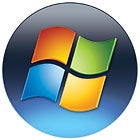
Starting in January,consumers could purchase Windows Vista. But anyone who bought a laptop or desktop PC in late 2006 was automatically enrolled in the Express Upgrade to Windows Vista coupon program, entitling them to a free upgrade from XP to Vista.
Unfortunately, many Express customers discovered that there was nothing “express” about the upgrade. Consumers who tried to redeem their coupons ran into delays when the companies responsible for processing the Vista coupons were overwhelmed by demand and ill-equipped to deal with it. Many people had to wait months to get their Vista upgrade disc.
But consumers’ Vista woes didn’t stop there: Some people who upgraded from XP decided that Vista wasn’t all that Microsoft made it out to be. By the summer, Vista was facing the prospect of mounting consumer defections, as major computer vendors told customers that they would help them get rid of Vista and revert to XP.
Out of the Frying Pan, Into the Fire
Many laptop users who managed to steer clear of Vista problems ran into a completely different source of trouble: Laptop battery woes that surfaced in 2006 developed into a horror show in 2007. Bad batteries dominated events in the laptop industry, and eventually nearly 10 million notebook PCs from Acer, Apple, Dell, Lenova, and Sony were recalled.
Music Tracks Get Cheaper and Finally Go Free
By all accounts it was a good year for music fans–especially cheapskates. The year in digital music started off promisingly when iTunes began dropping copy protection from many of the songs in its catalog.
Also in 2007, iTunes drew some serious competition in the digital download arena, with Amazon.com, Sprint, and others selling digital downloads–sans the requirement by Apple to use its iTunes software.
Skinflints, who rejoiced when iTunes’ prices for DRM-free tracks dropped from $1.29 to $.99, got even better news when Radiohead and other rock bands embraced a pay-what-you-want model for record albums and began selling music directly to fans though their own Web sites.
About the only music enthusiast who wasn’t happy in 2007 was Jammie Thomas of Minnesota, who was found liable for damages amounting to $222,000 for illegally sharing music files on Kazaa. In this civil suit, the Recording Industry Association of America had sued Thomas for copyright infringement in connection with downloads of 24 songs–and the jury found in the RIAA’s favor.
Web Video Shake Up: Networks Put Shows Online
2007 was a watershed year for fans of the broadcast TV shows CSI, Family Guy, Lost, and Heroes (among others). If they happened to miss an episode of these or many other programs, they could turn to the Internet to view the unseen action. Previously the networks had dabbled with putting prime-time shows online, but in 2007 they embraced the Web in earnest.
After NBC got in a spat with Apple over the sale of its programs through iTunes, the network decided to offer many of its prime-time shows for free at a new service called Hulu (still in trial mode). And Viacom decided to post its entire library of John Stewart’s Daily Show online for anyone to search and watch.
Television fans liked the idea of catching episodes online. But writers involved in creating and scripting the shows were irate–and went on strike–when broadcasters declined to share the extra online ad revenue with them.
Web Radio Sour Notes
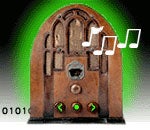
In August, large Webcasters reached an agreement with SoundExchange to allow them to continue operating The deal established a $50,000 cap on royalty fees for large Webcasters that may stream thousands of channels (the CRB’s per-channel minimum of $500 would have far exceeded the cap for major Internet radio sites). SoundExchange also offered smaller Webcasters the option of paying royalties based on their revenue rather than on their number of channels, provided that the revenue from the site involved did not exceed $1.2 million a year.
The future of Internet radio is by no means settled yet. Webcasters continue to appeal the CRB’s ruling in the courts, and Congress may intervene with legislation specifically designed for Internet radio.
Bandwidth Blues
You need a lot of bandwidth to download and stream TV shows and music over the Internet, which is why many ISPs began to doubt whether allowing customers to use unlimited amounts of bandwidth was a wise business strategy.
In 2007 Comcast decided to act, booting some customers who violated the ISP’s acceptable-use policy, which allows Comcast to cut off service to customers who “download too much” off the Internet. In other cases, Comcast dealt with customers who used specific, bandwidth-intensive applications such as peer-to-peer file-sharing programs by slowing their data transfer speeds.
Meanwhile, some telephone and cable companies expressed grave concern over proposed laws that would promote Internet neutrality by forbidding ISPs to prioritize packets based on where the packets came from (or based on how much the senders or recipients were paying).
Noteworthy Product News
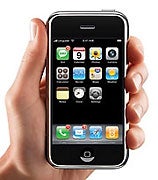
For people who were unwilling to fork over the dough ($499 for the 4GB model or $599 for the 8GB version at launch–or $200 less for the 8GB model two months later), the next major temptation from Apple was not long in coming: the iPod Touch.
Storage products (hard disk and optical) achieved important milestones in 2007. In January, Hitachi shipped the industry’s first 1-terabyte hard disk drive, the Deskstar 7K1000; to attain its huge capacity, this model incorporated five disk platters.
Other entries in the terabyte club soon appeared. Seagate announced its Barracuda 7200.11 in June, and then Western Digital joined the 1TB fraternity with its My Book World Edition drive.

Rival backers of the two formats tried to entice customers with price drops and free movie deals. But as 2008 arrives, it is still anyone’s guess as to which format will prevail.
Still Looking for a Wii
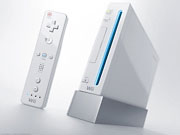
While fans of the Wii searched for game consoles, Xbox 360 gamers lined up for Halo 3. Nearly 1 million people preordered the latest installment in Microsoft’s hit Halo series, and retailers reportedly collected $170 million in sales within 24 hours of the game’s market debut.
The Year of the Tiny, Inexpensive Notebook
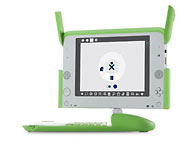
The XO laptop was plagued by production delays, cost overruns, and unexpected competition from Asus and Intel. As a result, OLPC organizers decided to let interested consumers in the United States and Canada buy an XO laptop for $200–as long as they paid another $200 for a second unit to be given away to a child in the developing world.
Google’s Growth Spurts
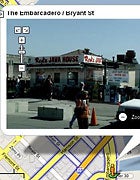
Not content with turning the wireless market on its head, Google also announced a host of services in well-established product categories. For example, the company launched the OpenSocial application platform for social network services, and Knol, a competitor to Wikipedia. What’s next, a Google automobile?
My personal favorite Google newcomer of 2007 was Google Street View. Some people, however, insist that this roving videocam viewer violates their privacy.
Tech Industry Goes Green
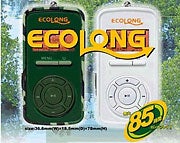
Dell, Google, HP, Intel, Lenovo, and even an MP3 maker called NHC went green in 2007. Google set out to decrease dependency on coal with its “RE-C” initiative, which pledges to invest “tens of millions” of research and development dollars in successful efforts to produce 1 gigawatt of renewable energy more cheaply than can be done using coal.
Meanwhile, Intel and 40 other organizations created the Climate Savers Computing Initiative, whose mandate is to increase the energy efficiency of computer and server equipment.
Hackers Enjoy Success in 2007
Let’s hope that 2007 marked the high tide for hackers and that 2008 will produce a downturn in their fortunes. Yeah, just call me Pollyanna.
Data thieves and botnet czars dispensed plenty of misery in 2007. Among other things, the year witnessed one of the largest digital data thefts ever: Hackers stole the names and credit card information of an estimated 45.6 to 94 million customers of department store owner TJX. The hackers gained access to TJX’s computer systems by eavesdropping on the department stores’ poorly protected Wi-Fi networks. The breach prompted numerous calls for stronger data-protection laws.
Also in 2007, things went from bad to worse for victims of so-called bot networks. In January, the Storm Worm emerged; it went on to become 2007’s biggest PC security threat. The name “Storm Worm” is a bit of a misnomer because the malware is actually bot software that corrals infected computers into a botnet–a network that executes commands issued by a central criminal controller.
Law enforcement agencies broke up many botnets this year. But security experts warn that for every individual arrested for running a botnet, a dozen more likely remain at large.
Looking Ahead to 2008
If 2007 is any indicator of what the tech world has in store for us in 2008, here are a few words of advice: Keep your virus definitions up-to-date, start saving for cool new gear (some of which we expect to see at the Consumer Electronics Show in early January), and consider waiting until Vista SP2 (or until you buy a new PC) before upgrading from XP.